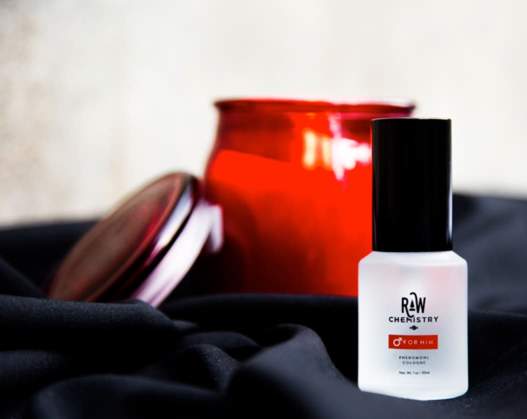Article: Do Humans Have Pheromones?

Do Humans Have Pheromones?
Whenever you hear or read about pheromones, your mind is likely to focus on animals. Humans have limited their understanding of pheromones to animal mating. What many fail to realize is that pheromones have several uses. To appreciate these diverse uses, you would need to understand that pheromones are chemicals that animals -- especially mammals and insects -- release to affect the physiology and behavior of other animals of the same species. Pheromones are messages sent between the same species, to help with more animalistic instincts.
The question everyone wants to know, however, is "Do humans have pheromones?"
Humans Produce Similar Chemicals
Yes and no... Because humans are capable of releasing chemicals that trigger certain responses in each other. In many ways, pheromones are agents that alter behavior. Unlike other hormones, pheromones act outside the body of the animal species that secretes them. This is just one of the differences between pheromones and other hormones. The reason for this is hormones tend only to affect the animal secreting or releasing them. With that said, it’s important to understand the role that pheromones play, which include the following:
- alarm
- following food trail
- sexual arousal
- informing females to lay eggs elsewhere
- respecting or honoring territory
- strengthening bond
- as a warning to back off
Do Humans Have Pheromones? Lack of Conclusive Evidence
There isn’t any conclusive evidence to indicate that humans truly have or produce pheromones. The first person to come up with the idea that humans probably release pheromones was a doctor and hygienist from Germany – Gustav Jager. The name he gave to what he referred to as human pheromones was ‘anthropines.’ Apart from him, researchers at the University of Chicago also claimed that women were likely to have a terrible time synchronizing their menstrual cycles without the help of odors – or human pheromones.
Proof of human pheromones is in women living together sharing synchronized menstrual cycles.
Types of Pheromones and their Uses
To understand this matter better, one needs to know the following types of pheromones:
- releaser pheromones
- primer pheromones
- signaler pheromones
- modulator pheromones
Releaser pheromones elicit immediate, rapid and reliable response. They are mostly good at enhancing sexual attraction. Primer pheromones need more time to elicit the required response. They influence menstrual cycles in women; hence, the high possibility of finding them in humans. Signaler pheromones provide information. For example, they enable mothers to recognize their babies using scent. Modulator pheromones are responsible for altering or synchronizing bodily functions. They are found in sweat, which humans emit a lot.
Do Armpits Produce Pheromone-like Substances?
One part of the human body that scientists believe could be sending the closest things to pheromones is the armpit. Often, pheromones cause humans to engage in a bit of casual flirtation. Apart from this, the armpit can sound the alarm. Human pheromones are discreet and subtle. They don’t scream out loud for everybody to hear. The armpit is renowned for releasing strong odors, especially sweaty smells. To some, sweat stinks. To others, sweat causes sexual arousal and other changes in behavior and physiology that warrant specific reactions.
So, do humans have pheromones? It’s worth reiterating that there isn’t conclusive research showing if humans have pheromones, but that is where our products differ. Our pheromone products have dozens of reviews across the web from satisfied, confirmed purchasers who swear by our products. So if you're looking to give yourself a competitive edge, check out our pheromone perfume or pheromone cologne. With our products, it doesn't really matter if humans have pheromones or not, does it?
